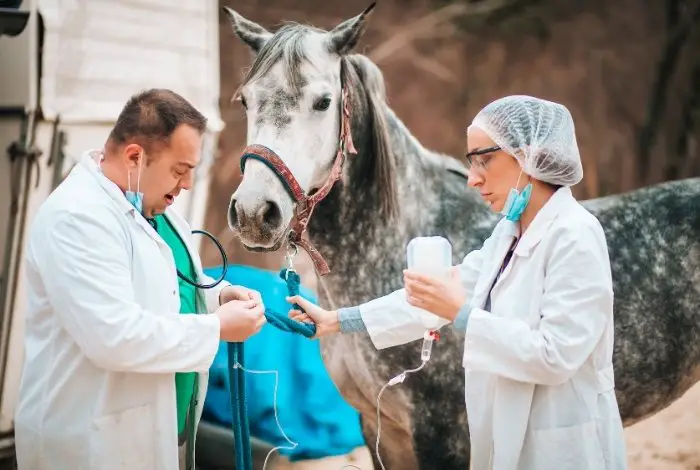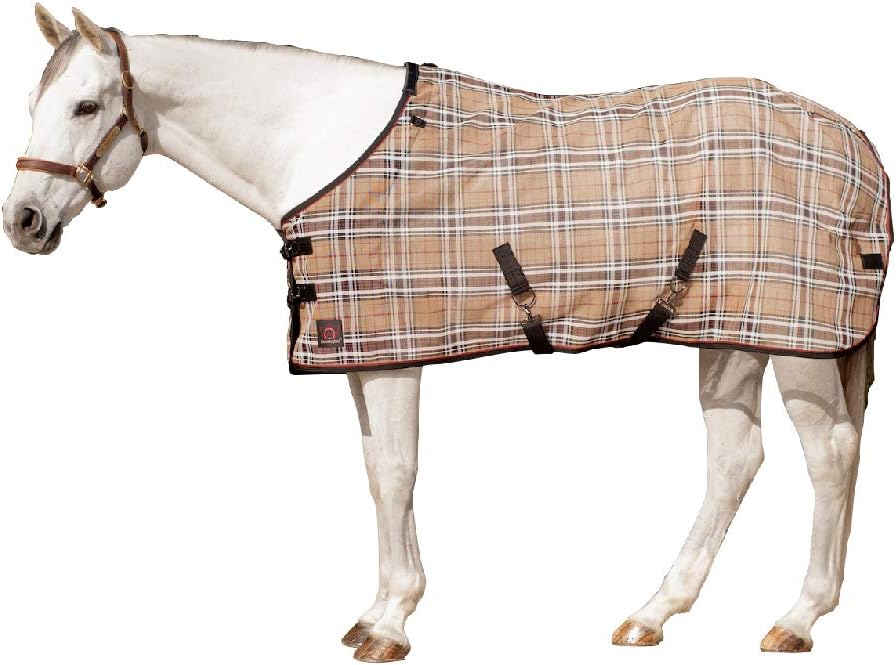Last Updated on January 25, 2022
West Nile virus is a mosquito-borne virus affecting the central nervous systems of both humans and other animals. However, West Nile virus (WNV) cases in horses account for almost 97% of all non-human mammal cases of WNV. WNV is still fairly new in the United States, appearing on the east coast in 1999. By 2002, the West Nile virus has reached the west coast of the US. Here’s what you need to know about the West Nile virus in horses:
What is West Nile Virus in Horses?
Although still relatively new to the United States, WNV can cause serious illness and death in horses. Only 2 out of every 3 infected horses exhibiting symptoms will make a full recovery despite no “cure”. Although vaccinations have led to only a small fraction of horses contracting the virus, the initial mortality rate in 2002 was 34%.
Transmission
West Nile virus is perpetuated through a mosquito-bird-mosquito cycle of transmission. Mosquitos using birds as their blood-meal sources will transmit the virus to humans and horses. The Northern House Mosquito is the major perpetrator of the virus cycle. Unlike mammals, a bird’s system will circulate high pathogen levels in their bloodstream. After feeding on an infected bird, a mosquito will later feed on a horse. The lack of quarantine requirements for WNV is due to a lack of transmission from horse to another host. Humans and horses cannot spread WNV due to low circulated pathogens. This means a mosquito must have fed on an infected bird.
Like other diseases and viruses, the West Nile virus is considered seasonal. This is because mosquito activity is also seasonal with a rising presence in the summer. Most equine transmission occurs during late summer and early fall.
Symptoms
Symptoms can be wide-ranging. Many are neurological symptoms that may indicate other (but serious) diseases and viruses. Contact your veterinarian immediately if your horse has any of the following symptoms:
- Consistent colic-type behavior
- Muscle tremors or paralysis
- Lack of coordination or weakness
- Stumbling
- Drooped lower lip
- Difficulty swallowing
- Hind end weakness
- Head pressing

Treatment
WNV is confirmed via a blood test, typically accompanied by a full neurological exam. There is no “cure” for West Nile Virus, but some horses can be managed depending on the severity. Due to the inability to spread the virus, infected horses do not require quarantine. Supportive care is dependent on the severity and progression of the virus. Treatment is concentrated on continued nutrition, sometimes assisted by anti-inflammatory meds or IV fluids. Horses suffering from recumbence, or the inability to stand, are typically too severe to successfully treat. A veterinarian may suggest supplements to boost the health of the horse’s neurological system.
Prevention
The best methods of prevention for WNV are vaccination and mosquito control. Although there is no human-approved vaccination, there is a WNV available from your veterinarian. West Nile virus is now part of the equine “core” vaccines. You can read more about vaccinations here. Mosquito management can include insect repellants, fans, stabling horses at dusk/dawn, weed control, and eliminating stagnant water (breeding grounds).
Find The Best Fly Sheets For Horses
Kensington Platinum SureFit Protective Fly Sheet
Final Words
Although potentially fatal, mosquito control can be managed and vaccinations are available. If your horses exhibit any neurological symptoms, contact your veterinarian immediately.
Do you have friends with horses? Be sure to share this article!
Equestrian, Marine Corps vet, and Morgan horse enthusiast.

